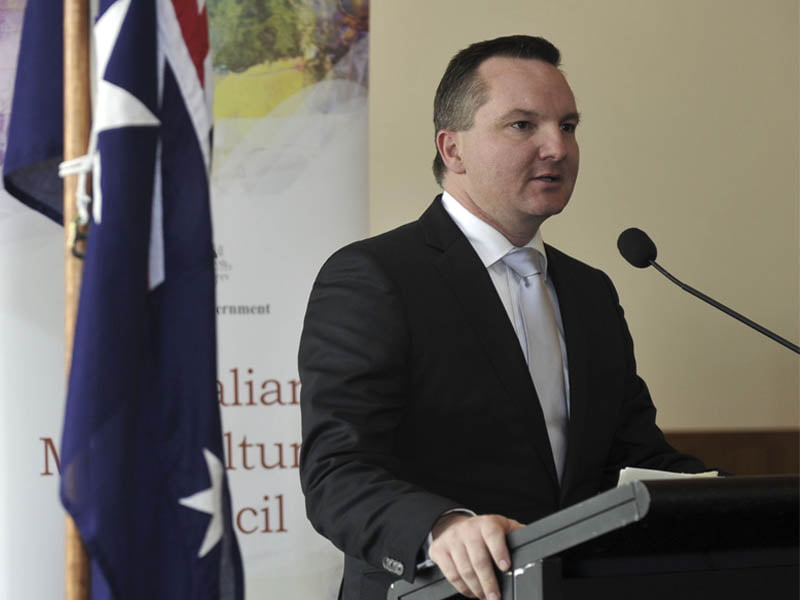Shadow Treasurer Chris Bowen has recommitted Labor’s focus on globalisation and large scale multilateral trade deals in a big set-piece speech on Tuesday.
Speaking at the Lowy Institute, Mr Bowen addressed the “confusing and confronting” global economic environment and argued for a move towards globalised, big picture trade agreements with a focus on social equity.
“This is a time for cool heads. For a values-based approach which looks to the long-game. It’s a time which calls for governments to listen to people’s concerns about those left behind and to provide concrete and real solutions, which avoid simplistic and unrealistic false solutions,” Mr Bowen said.

“Which calls for governments to be honest about the challenges and opportunities in the global environment.”
The Shadow Treasurer rejected the federal government’s recent push for bilateral free-trade agreements, saying these are a “third-best outcome” and focus should instead be placed on multilateral deals and regional agreements.
“Bilateral free trade agreements have only become fashionable as the world appeared to have given up any meaningful multilateral reform, frustrated by repeated failed attempt.,
“But free trade agreements have eaten up the resources of trade negotiators and consumed the political bandwidth. These deals take up considerable energy of the body politic and in the process take the focus off genuine multilateral reform.”
The speech is a clear attack on the government’s recent push for bilateral free trade partnerships, as part of Treasurer Scott Morrison’s “Australia first” policy announced in January.
Mr Morrison visited Britain in January to lay the groundwork for a bilateral free trade deal following the country’s split from the EU, and Trade Minister Steve Ciobo is currently on a trip to Britain, along with Indonesia and Chile, to discuss free trade.
Mr Bowen also urged the government to admit the Trans-Pacific Partnership is dead, following US President Donald Trump’s rejection of it.
“There is no point pretending it’s alive or that it is merely pining for the fjords. The benefits of the TPP would not have been as great for Australia as some people like to make out,” Mr Bowen said.
Instead, the 16-member Regional Comprehensive Economic Partnership should “take centre stage” as a “pathway to broader liberalisation in APEC”, Mr Bowen said.
“The one thing we shouldn’t be doing is spending all our energy trying to resuscitate and advocate for deals like the TPP which are currently not going anywhere. Instead, Australia should be actively participating in the regional discussion about ‘what’s next’ when it comes to regional free trade,” he said.
This means Australia taking a central role in brokering and negotiating these regional deals.
“Labor believes that Australia can play an important role again in progressing the case for multilateral reform. We don’t overstate that role. We are a middle-sized economy and the task is tough,” Mr Bowen said.
Mr Bowen also spoke about how Australia would have to look inward to ensure equity and fairness is upheld in the world of globalised free trade.
“Trade and economic dislocation generally does have losers and no lecture about the greater good will or should cut the mustard without these people,” he said.
“Governments have to listen to concerns that this dislocation is having, particularly in parts of our economy that are not doing as well as the big cities. The onus is on leaders to do better in communicating the benefits if trade and what trade delivers.”
This is largely a matter of ensuring these large deals are broad enough to benefit as many Australians as possible, he said.
“We can’t expect people to be upset about the attacks on a globalised economy when they don’t feel they are benefitting from it personally, here at home,” Mr Bowen said.
“The more people feel they benefit from our economy, the more they will embrace openness and the system which has allowed a small open economy like Australia to prosper.”
Do you know more? Contact James Riley via Email.

